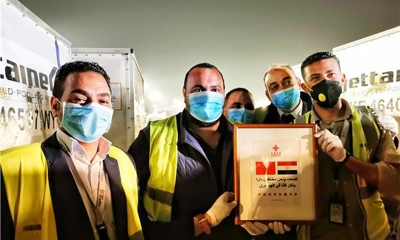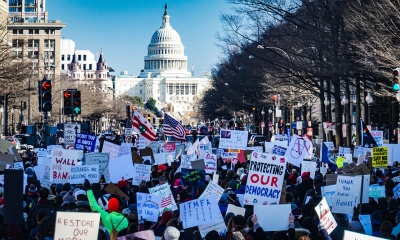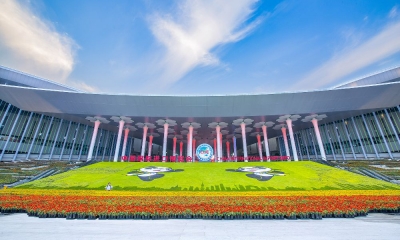China, Egypt and Arab States: Cooperation and Prosperity
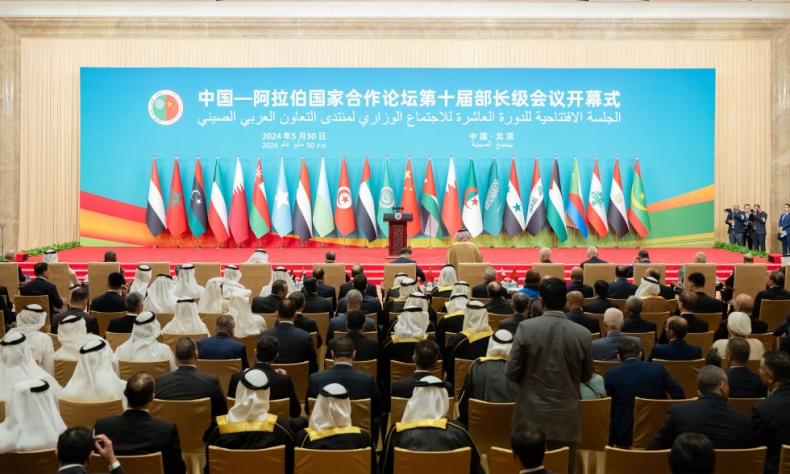
The prospects for cooperation between China and Arab states, particularly Egypt, are bright and potentially limitless.
China-Arab cooperation has come to a new height as the 10th ministerial conference of the China-Arab States Cooperation Forum opens on May 30 in Beijing. Chinese President Xi Jinping and the leaders of Egypt, the United Arab Emirates, Bahrain and Tunisia attended the meeting which coincides with the 20th anniversary of the founding of the Forum.
China-Arab relations becoming closer
Over the past 20 years, the forum has made achievements in wide-ranging fields such as politics, economy, trade, energy, culture, health, etc. The forum has become an effective tool to enrich partnership relations and an important platform for dialogue and supporting practical cooperation between the two sides.
China and Arab states have been keeping stable and sound cooperation since the beginning of the 21st century. As a milestone of the development of the relations, China and Arab states agreed to build a China-Arab community with a shared future in the new era at the first China-Arab States Summit in Riyadh, Saudi Arabia, in December 2022. Now the two sides are working together and marching forward to this great goal.
In his keynote speech at the opening of the ministerial meeting, President Xi announced that China will host the second China-Arab States Summit in 2026, which is set to be another milestone in China-Arab relations.
It is expected that China and Arab states will continue their close cooperation on economy, trade, infrastructure, green development, energy, science and technology, as well as the Belt and Road Initiative.
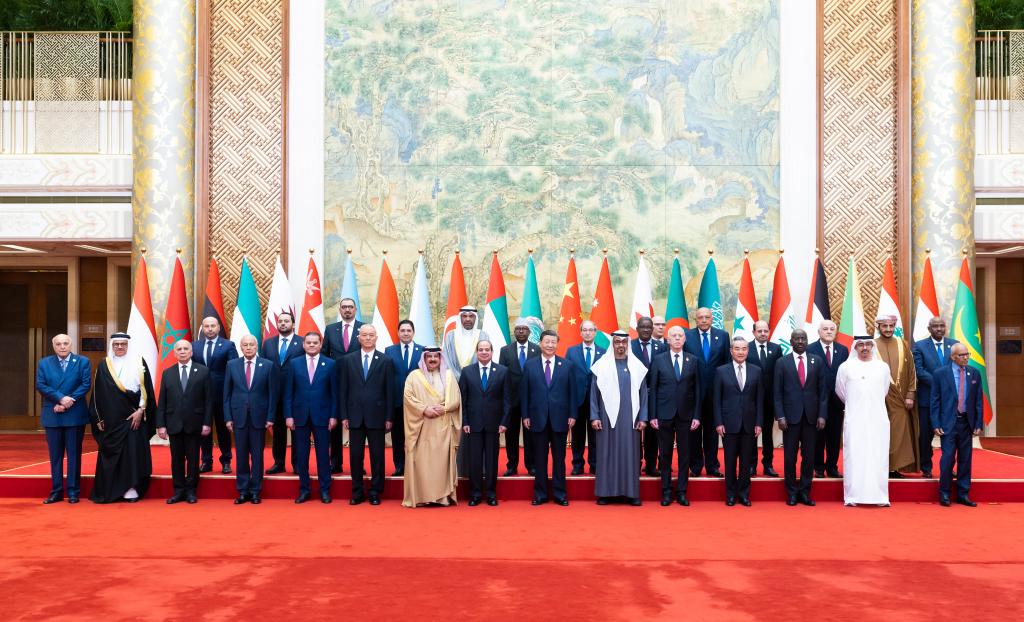
China and the Arab side will also strive together for solutions to hotspot issues, especially the Palestine issue. As President Xi said, China firmly supports the establishment of an independent State of Palestine that enjoys full sovereignty based on the 1967 borders and with East Jerusalem as its capital. China supports Palestine’s full membership in the United Nations.
China will continue to provide assistance to help ease the humanitarian crisis in Gaza and support post-conflict reconstruction, and support the work of the U.N. Relief and Works Agency for Palestine Refugees in the Near East in providing emergency humanitarian assistance to Gaza, Xi said.
Meanwhile, the Arab states also permanently support the one-China principle.
China-Egypt cooperation continuously deepening
Among China’s relations with Arab states, there is no doubt that Egypt-China relations are currently at their best.
On May 29, a day before the opening of the ministerial meeting, Chinese President Xi Jinping held talks with visiting Egyptian President Abdel Fattah El-Sisi in Beijing. The two presidents witnessed the signing of bilateral cooperation documents after their talks.
Egypt was the first Arab and African country to establish diplomatic relations with China. In 2014, China and Egypt lifted their bilateral ties to a comprehensive strategic partnership, and the bilateral relations ushered in a new chapter of cooperation in all fields.
The close relationship between the two countries is evident from a number international organizations and groups in which the two countries are members, such as the Shanghai Cooperation Organization, the China-Africa Cooperation Forum, and the China-Arab Cooperation Forum. Recently Egypt also joined the BRICS.
The upward trend in bilateral relations between the two countries can be attributed to several key foundations. As two countries with ancient civilizations, Egypt and China have served as pillars of their regions, each possessing political powers, cultural institutions, social organizations, and development vision.
Both countries are committed to making their foreign policies in accordance with the principles of international law and mutual respect. For this reason, Egypt and China have a similar, if not identical, vision on many global issues and internal affairs. The two countries pursue compatible policies with regard to seeking and working for peace of the world, advocating democratic international relations, and establishing a fair international political and economic order based on respect for each country’s sovereignty.
Additionally, both countries uphold the principle of non-interference in the internal affairs of other countries and strive to resolve disputes through peaceful means. This alignment is evident in their positions on various international occasions of exchanging views on regional and international conflicts.
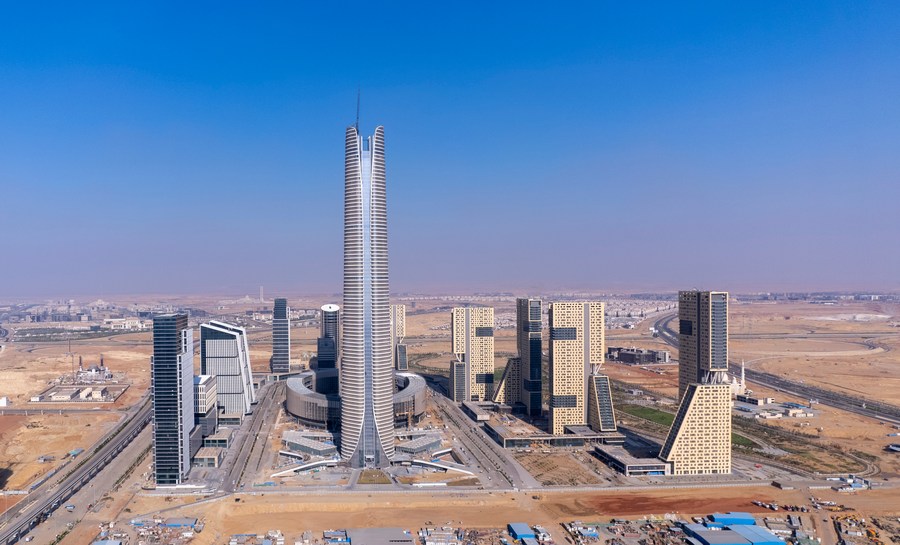
China-Egypt economic cooperation is a model of success in the Arab and African regions. Among the most prominent China-Egypt cooperative projects are the Financial and Business District Project in the new administrative capital, the TEDA-Suez Zone and the electric train project in Ramadan City. In addition, the Export-Import Bank of China has financed the railway project connecting Cairo to the new administrative capital. China has also invested in major projects in ports, energy, agriculture, and other fields.
Moreover, China has supported the Egyptian space program by transferring expertise that enabled Egypt to locally assemble a satellite and launched it last December. It was the first Egyptian satellite launched into space.
The volume of Chinese investments in Egypt reached $8 billion in 2023 through more than 2,600 companies, mainly distributing in the fields of energy, logistics, agriculture, chemicals, mining, transportation, construction and real estate.
China-Egypt cooperation in developing the Suez Canal Economic Zone is another example. Egypt has always dreamed of developing this important region. This partnership has attracted investments not only from China, but also from other countries around the world, especially in green hydrogen. Chinese investments in Egyptian ports along the Suez Canal significantly enhance global trade, serving the markets in Africa and Europe, and global supply chains. In TEDA Zone, more than 140 companies, spanning industrial, logistics, and service sectors, have injected over $3.3 billion in investments, creating more than 10,000 job opportunities.
The trade relationship between China and Egypt had experienced a major boom with trade volumes increasing from $10 billion in 2014 to $15.8 billion in 2023. Egypt’s exports to China encompass a diverse range of commodities including fuel, mineral oils, cotton, fruits, textile fibers, leather, copper, aluminum products, and fertilizers. Egypt’s imports from China consist of machinery and electrical appliances, boilers, mechanical tools, synthetic bristles, plastics, organic chemical products, cars, tractors, iron, steel, and fabrics.
Egypt is one of the most important tourist destinations for China. In this regard, the Egyptian Ministry of Tourism aims to increase the number of Chinese tourists to Egypt to three million by 2028 as part of the state’s ambitious strategy to increase its share in the Chinese tourism market. According to data from the Egyptian Ministry of Tourism, Egypt currently receives between 4,000 and 5,000 Chinese tourists weekly.
The cooperation between China and Egypt is extending far beyond their borders, with positive impacts resonating regionally, continentally, and globally. Their cooperation also conduces to the development of Africa and reform of international institutions.
The prospects for cooperation between China and Arab states, particularly Egypt, are bright and potentially limitless. Breakthroughs are being witnessed and will continue to expand in more areas.
The article reflects the author’s opinions, and not necessarily the views of China Focus.
 Facebook
Facebook
 Twitter
Twitter
 Linkedin
Linkedin
 Google +
Google +





